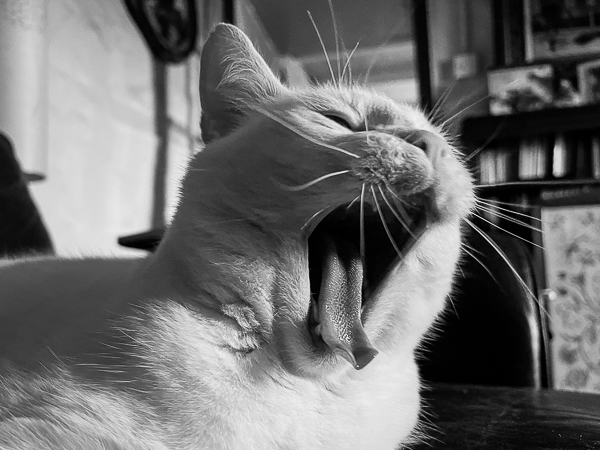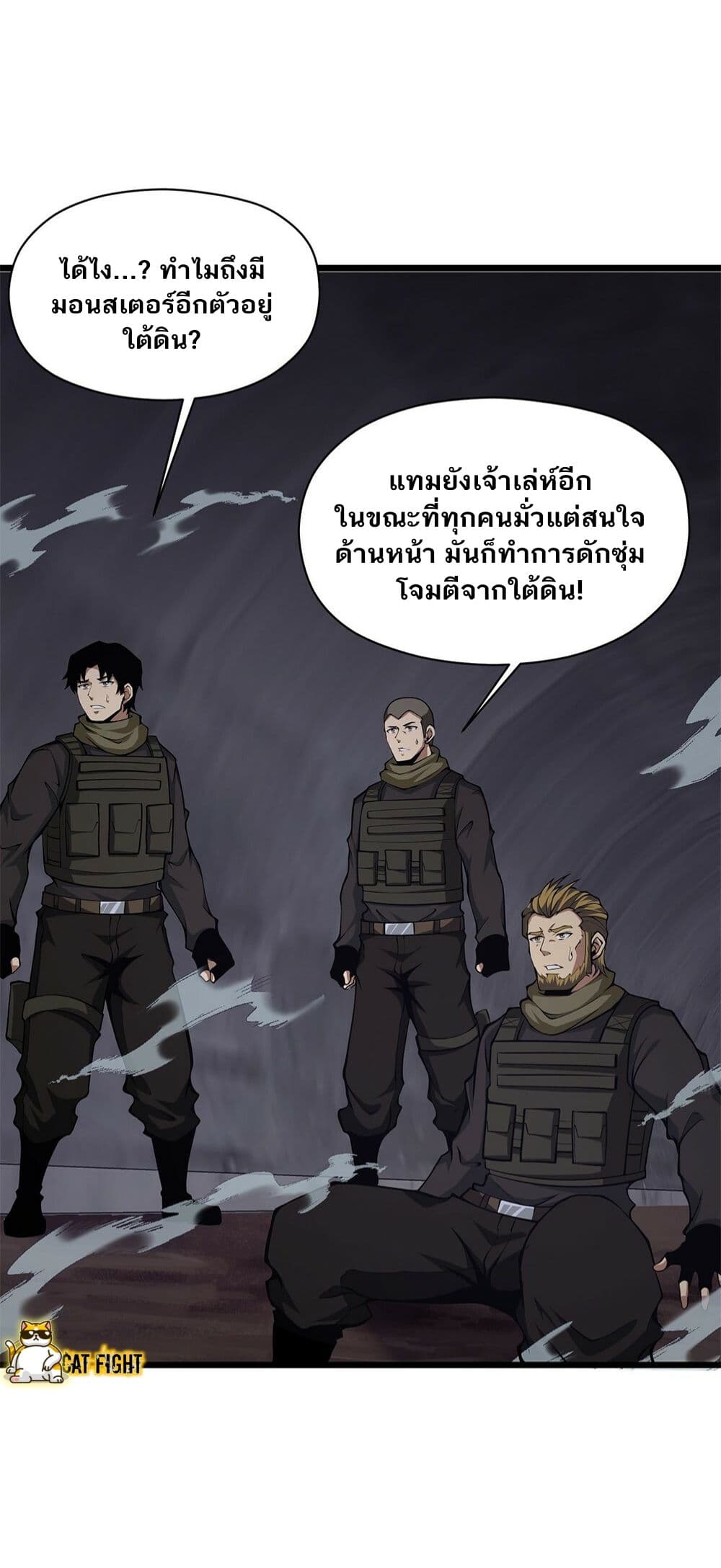It started innocently enough. A misplaced grocery item, a missed deadline, a forgotten birthday. Each seemingly insignificant slip-up, however, amplified into a cascade of negative emotions, transforming my internal voice into a chorus of harsh criticism and self-recrimination. The more I tried to reign it in, the stronger the internal monster roared, twisting my thoughts into a knot of self-doubt and frustration. It was as if a hidden, primal force had taken hold, demanding I become its vessel, its weapon of self-destruction.

Image: myshetland.co.uk
The unsettling truth is, we all have this monster lurking within. It’s the primal urge to lash out, to protect ourselves at all costs, even if it means sacrificing others or our own morals. It’s the voice that whispers, “You deserve this,” or “They did this to you, so it’s okay to retaliate.” It’s the shadow self that we try to ignore, to suppress, but often, it wins.
Unmasking the Monster: The Nature of Our Dark Side
The concept of the “monster within” is a powerful metaphor, one that has resonated with humanity for centuries. Literature and mythology are filled with tales of creatures that represent our darkest fears and desires, often personified as monstrous beings that threaten civilization. From the Minotaur in Greek mythology to the Wolfman in modern folklore, these characters embody the primal energy that we strive to control, yet sometimes cannot resist.
In psychology, the concept of the shadow self, developed by Carl Jung, explores the repressed or unconscious aspects of our personality. This shadow self often manifests as negative traits, desires, and impulses that we deem unacceptable or undesirable. It’s the part of ourselves that we try to hide, but it still influences our thoughts and actions in subtle and often unconscious ways.
The Roots of Our Inner Beast
The development of our inner monster is a complex process, shaped by a myriad of factors. Early childhood experiences, particularly those marked by trauma or neglect, can contribute to the formation of a strong and negative shadow self. Furthermore, social conditioning and societal pressures can reinforce certain negative behaviors, making it easier for the monster to gain influence. Imagine, for instance, a child who is constantly criticized for their mistakes, developing a fear of failure that manifests as self-doubt and a tendency to avoid taking risks.
It’s important to remember that our inner monster is not inherently evil. It is a product of our experiences, a reflection of our attempts to navigate a complex and often challenging world. As we grow and mature, we can learn to understand and manage this darker part of ourselves. It’s about recognizing that everyone has this shadow self, and it’s not something to be ashamed of. It’s about developing healthy coping mechanisms and building positive self-image to counteract the monster’s negative influences.
Confronting the Beast: Overcoming Our Dark Side
The journey of confronting our inner monster is a personal and ongoing one. It’s not about eradicating it entirely, but about learning to manage and redirect its influence. This journey requires self-awareness, conscious efforts to challenge negative thoughts and behaviors, and a willingness to confront difficult emotions.
One crucial step is to acknowledge the monster’s existence. This might involve journaling, therapy, or simply taking the time to reflect on the destructive patterns in our thoughts and actions. Recognizing the monster’s presence allows us to take control of the narrative and make conscious choices about how we engage with it.
Another important aspect is developing self-compassion and understanding. Instead of judging ourselves harshly for having these negative thoughts and impulses, we need to recognize that we are human and prone to making mistakes. Our inner monster is a part of us, and it doesn’t define who we are.

Image: www.niceoppai.net
Embracing Our Shadow: Learning from Darkness
The journey of confronting our inner monster is not about denying its existence, but about learning to integrate its insights into a more balanced and integrated self. Our shadow self, while often negative, can also hold valuable information about our needs, desires, and fears. It can reveal areas where we are struggling or where we need to make changes. By understanding and acknowledging the darkness within, we can gain valuable insights into our motivations, fears, and desires.
The key is to learn to harness the power of the darkness for good. Instead of letting the monster manipulate our thoughts and actions, we can use its energy to fuel our drive, creativity, and determination. The most effective way to overcome negativity is not through denial, but by channeling its power into something positive. This approach allows us to achieve personal growth and transformation, while simultaneously acknowledging the powerful forces that shape our inner world.
Navigating the Shadows: Expert Tips for Overcoming Your Inner Monster
Dealing with our inner monster requires a multifaceted approach. It’s not a quick fix, but an ongoing practice of mindful awareness and self-compassion. Here are some tips based on psychological research and personal experience to help you navigate the shadows:
• Self-Reflection: Dedicate time to journal, meditate, or engage in introspection. Explore your thoughts and feelings, particularly those that feel negative or uncomfortable. This allows you to understand the roots of your inner monster and its influence on your behavior.
• Mindfulness Practices: Mindful breathing, meditation, and yoga can help you cultivate awareness of your thoughts and feelings, allowing you to better manage impulses and react to situations with greater calmness and clarity.
• Cognitive Behavioral Therapy (CBT): Seek professional help to challenge negative thoughts and behaviors. Cognitive behavioral therapy teaches skills to identify, evaluate, and change maladaptive thinking patterns that contribute to your inner monster’s influence.
• Embrace Failure: Learning to view failure as a natural part of the learning process can help minimize the impact of self-criticism. Acknowledge your mistakes, learn from them, and move forward.
• Cultivate Self-Compassion: Treat yourself with the same kindness and understanding that you would offer a close friend. When negative thoughts arise, acknowledge them, but don’t let them define you. Instead, offer yourself support and encouragement.
• Seek Support: Confide in trusted friends, family members, or a therapist. Sharing your struggles can help you feel less alone and offer a sense of validation.
Frequently Asked Questions
Q: Is it normal to have a “monster” inside of me?
A: Yes, everyone has a shadow self, a part of them that holds negative thoughts, impulses, and emotions. This is a normal part of being human. The key is to learn to manage and integrate this shadow self into a more balanced and complete picture of yourself.
Q: What if I can’t control my inner monster?
A: If you feel overwhelmed by your inner monster and struggling to control its influence, it’s important to seek professional help. A therapist can provide safe and supportive space to explore your feelings and develop strategies for managing negative thoughts and behaviors.
Q: Will my inner monster ever go away?
A: It’s unlikely that your inner monster will ever entirely disappear, but it can become less powerful and less influential over time. With conscious effort and consistent practice, you can learn to manage your shadow self and integrate it into a more balanced and integrated sense of self.
I Have To Be A Monster
Conclusion
Confronting the monster within is a challenging yet ultimately rewarding journey. It demands self-awareness, courage, and a willingness to embrace the full spectrum of human experience, including our darker sides. By acknowledging, managing, and ultimately integrating our shadow selves, we can unlock a greater sense of personal growth, acceptance, and self-compassion.
Are you ready to embark on this journey of self-discovery? Share your thoughts and experiences in the comments below.






